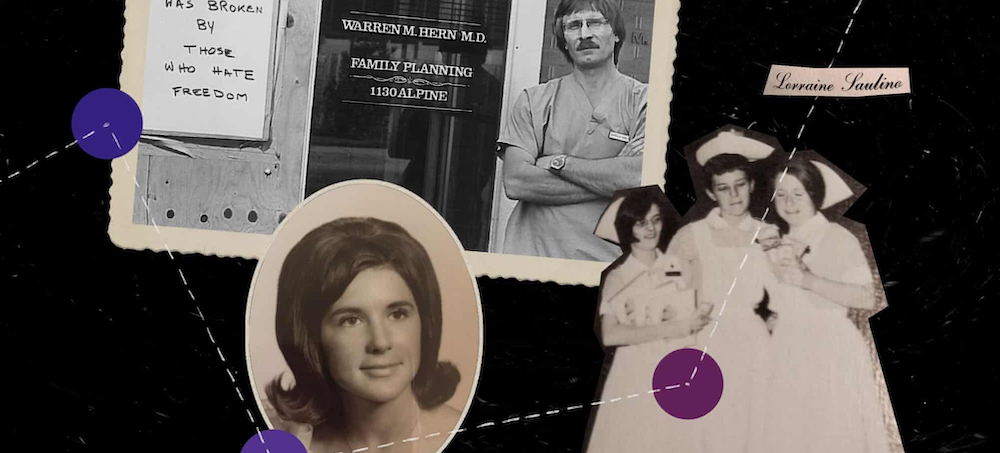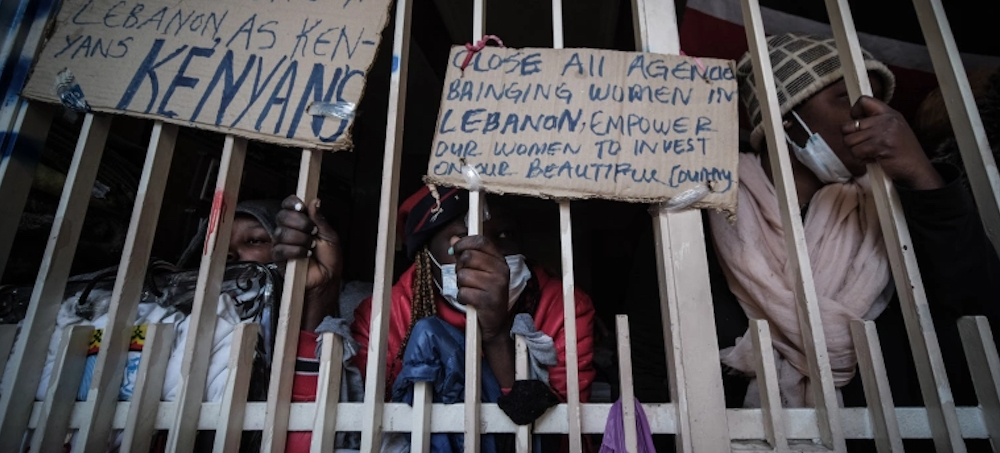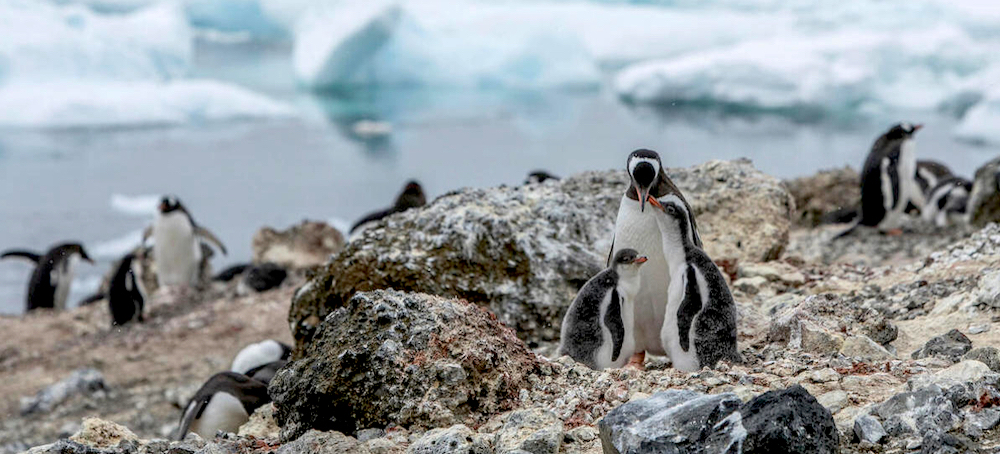Live on the homepage now!
Reader Supported News
The article below is satire. Andy Borowitz is an American comedian and New York Times-bestselling author who satirizes the news for his column, "The Borowitz Report."
According to a source close to DeSantis, the Florida Governor has decided to “run to the stupid of Trump” to pick up the support of voters who now consider the former President too intellectual.
“When Trump recently said that he got the booster, that was the last straw,” the source said. “In the eyes of a lot of Republicans, Trump is basically Fauci now.”
“Trump’s surrender to science is a slippery slope,” the source added. “It’s only a matter of time before he starts flirting with geography and grammar.” As DeSantis stakes his claim to the dumber-than-Trump lane, he spoke at a fund-raising event over the weekend.
“Donald Trump believes that one plus one equals two,” the Governor told his audience. “I think the American people should be free to decide for themselves what one plus one equals.”
 'I was terrified on the operating table. I couldn't stop shaking.' (image: The 19th)
'I was terrified on the operating table. I couldn't stop shaking.' (image: The 19th)
ALSO SEE: I Was in an Underground Abortion Network Before Roe v. Wade
The supreme court decision in Roe v Wade was made 49 years ago, making abortion a protected right. Now, with that right under threat, people recall life before the landmark ruling
During oral arguments for Dobbs v Jackson Women’s Health Organization last year, a majority of the court appeared ready to severely weaken or overturn Roe v Wade, allowing dozens of Republican-led states to acutely restrict access, or ban abortion entirely. A decision is expected this summer.
Such a reversal would be historic. Many Democratic-led states are now likely to pass laws cementing abortion protections, creating oases of access to the procedure in safe, legal settings. But options would still be far more limited.
The 19th spoke with people across the country about their memories of life before the landmark decision, as well as how things have changed in the years since.
The illegal abortion was in 1966. I had just turned 20. It was the first guy I slept with, and I did not know shit about birth control or any other thing. I was living at home with deeply conservative parents who I simply could not tell. I had a very good friend who was at Goucher College, in Townsend, Maryland. It was a girls’ school and they had a network, a pipeline to a gynecologist in Baltimore.
So I got myself to Baltimore. [The gynecologist] was a lovely lady. She gave me a little tiny folded piece of paper with a phone number on it.
I call the number and some guy answers, and the arrangements are made – it’s supposed to be $600 in cash. We agree on a date and a pickup point, which was on Utah Street in downtown Baltimore, in front of a movie theater. We pick the date and the time. And then I have to find $600. I mean, that was a lot of money in 1966.
So I borrowed $100 here and $50 there. The day before the abortion, I was $200 short. This boy was just a real prick, so I called his parents. They gave him $600 and he gave me $200 that I was short.
He did drive me to Utah Street, and I stood there waiting to be picked up. Finally, a man in a sedan with a dog in the backseat pulls up. He could have been a serial killer, but he had a dog. That’s how you knew it must be OK.
I get in the backseat, and we drive out to a farmhouse. There was a couple … they laid me down on a table and gave me a mask. I had no anesthesia. After a while somebody I presumed to be a doctor comes out wearing scrubs, and he performs the abortion. He leaves, and the people who are there give me some pills to dry up my milk, and some maxi pads.
And then the guy drives me back to the movie theater on Utah Street. I stayed with a friend. I didn’t go back to my parents at night. That was it. At the time, I had a job working on the Hill for a Maryland congressman. And I was absolutely crazed that I had done this. I had done this illegal thing, and was that going to come back and — you know? But nobody ever found out about it.
Was I scared? I was terrified on the operating table. I couldn’t stop shaking. Would I have changed my mind? No, I would have driven off a bridge before I would have had a baby. I would have been forced into a marriage with a completely unsuitable human being.
Rosalyn Jonas, 75, Bethesda, Maryland
‘She went for a coat hanger’
I graduated in 1967 from high school, and when I was 18, I went straight into nursing at Brooklyn, New York: Kings County Hospital Center School of Nursing.
I wasn’t even aware of the abortion laws in New York. I mean, you heard stories of people who were going to some back rooms or doctors. Then somebody would disappear. There was a hush she was pregnant and she’d be away. So we didn’t know whether she went to an aunt to have a baby or was pushed off somewhere to have an abortion. But everything was hush hush. We didn’t talk about it at all.
I was assigned to a 16-year-old [at nursing school]. I walk into the room, and there were like six or eight doctors standing around this beautiful looking girl. I mean, I’m 18, she’s 16. And her eyes are rolled back. She’s thrashing all over the bed. And all these docs are totally helpless.
This kid was pregnant. She went for a pill. And then she went for a coat hanger, because she wasn’t sure it was working.
She was a Catholic kid. She didn’t have anybody or anywhere to go, she didn’t know where to look for help. I’m in charge of taking temperature. The temperature is going up. It gets to 107.
Oh, it was the most horrible thing I have ever seen in my life. She dies in front of all of these doctors, and they’re helpless.
I was a Catholic teen. But right then and there I thought no one, no matter what kind of mistake or goof-up or whatnot they did in their life, they shouldn’t have to suffer and die like that.
It was a nightmare. And I will for my whole life never forget it. It traumatized me. But it made me firmly in the camp that no matter what you do in your life, nobody should have to go through that.
Lorraine Saulino-Klein, 72, of Laramie, Wyoming
‘I expected to be assassinated any time’
I began to get acquainted with this issue when I was a junior medical student – this is back in 1963. Every night that I was on call in the gynecology ward, my colleagues and I were up all night taking care of the women who had either self-induced or poorly done illegal, unsafe abortions.
About that time, there was a woman who had gone to the emergency room to see if they could end the pregnancy. She was several months pregnant. When they refused, she went home and shot herself in the uterus and then drove to the hospital.
This is an example of the kind of catastrophic things that women did to themselves. They would put lye in their vagina to induce an abortion. They literally used coat hangers and knitting needles. They died.
I began studying public health. What I decided to work in was population epidemiology, and that included looking at the health effects of illegal abortion.
It became clear to me that the effects of illegal abortion and the abortion laws were visited particularly upon women who were poor or many members of minority groups. The death rate due to illegal abortion was nine times higher among Black women than it was among white women.
I was in a pre-term clinic in Washington DC in 1971, and I learned how to do an early first-trimester abortion. I wasn’t really planning to practice medicine… but then I was in Colorado in 1973, when the Roe v Wade decision came down.
There was a group in Boulder that wanted to start a private nonprofit abortion clinic. And they got my name and called me and asked me if I would be willing to help them start this clinic. I had no intention of doing something like that. But when they invited me, I accepted.
Implementing the Roe v Wade decision was extremely important. The decision itself didn’t get anybody an abortion; it was only meaningful if doctors were willing to perform the abortion.
We started performing abortions in November 1973. I immediately became the target of hatred by not only the public, but members of medical community. I was living up in the mountains in a cabin I got with my father, and I was very, very frightened. I expected to be assassinated any time.
I love seeing patients and enjoy talking with them. And they tell me their stories. And every, every single one has an important story to tell.
Most of my patients now or at least at least half of them, sometimes more, are patients who have desired pregnancies that have a terrible complication of fetal disorder, genetic disorder. And they’ve decided to end the pregnancy, even though it’s a desired pregnancy. We see a lot of patients with those circumstances.
We see patients who are extremely young, 11 and 12 years old, who’ve been raped or sexually abused. Victims of incest. These young girls should not have to carry a pregnancy to term. It’s very dangerous for them. They’re not prepared to be a parent.
But in any case, right now as we speak, we have anti-abortion fanatics in front of my office. There’s a man that comes and stalks me every Tuesday morning. And I think he wants to kill me. I have to assume that, because five of my medical colleagues have been assassinated.
Warren Hern, 83, of Boulder, Colorado
 Ukrainian Territorial Defense Forces attending military exercises. (photo: Valentyn Ogirenko/Reuters)
Ukrainian Territorial Defense Forces attending military exercises. (photo: Valentyn Ogirenko/Reuters)
The shipment is part of the additional $200 million of "lethal aid" approved by President Biden in late December and includes ammunition for Ukraine's frontline defenders, the U.S. Embassy in Kyiv tweeted. Overall, the U.S. has provided $650 million in defense equipment and services to Ukraine in the last year — the most it has ever given that country, according to the State Department.
"The United States and its allies and partners are standing together to expedite security assistance to Ukraine," Secretary of State Antony Blinken said in a tweet on Friday. "We are utilizing all available security cooperation tools to help Ukraine bolster its defenses in the face of Russian aggression."
And it comes after Blinken visited Kyiv and met with his Kremlin counterpart, Foreign Minister Sergey Lavrov, in Switzerland earlier this week.
"We didn't expect any major breakthroughs to happen today," Blinken said at a news conference following his meeting Friday with Lavrov in Geneva. "But I believe we are now on a clear path in terms of understanding each other's concerns and each other's positions."
Russia has continued to insist on a written guarantee that Ukraine won't join NATO. Blinken said he made the U.S. position clear, which is to "stand firmly with Ukraine in support of its sovereignty and territorial integrity."
Blinken said that any military action on Russia's side would "be met with swift, severe, and a united response from the United States and our partners and allies." Russia has denied any intention of invading.
Biden clarified his message after news conference
In his lengthy news conference Wednesday at the White House, Biden seemed to complicate the message from his own Secretary of State, saying that if Russia committed a "minor incursion" there might be a divide among NATO allies on how to respond to the aggression.
"I think what you're going to see is that Russia will be held accountable if it invades. And it depends on what it does. It's one thing if it's a minor incursion and then we end up having a fight about what to do and not do," Biden said.
Ukraine President Volodymyr Zelenskyy swiftly responded on Twitter saying, "We want to remind the great powers that there are no minor incursions and small nations."
On Thursday, Biden clarified his stance saying any invasion would be met with a "severe and coordinated" economic response.
"If any — any — assembled Russian units move across the Ukrainian border, that is an invasion," Biden said. "Let there be no doubt at all that if [Russian President Vladimir] Putin makes this choice, Russia will pay a heavy price."
Blinken reiterated the president's stance in a tweet Saturday, after a conversation with Canadian Foreign Minister Mélanie Joly.
"We remain committed to diplomacy but are ready, in coordination with NATO Allies and partners, to impose severe costs for further Russian aggression," he said.
 Rudy Giuliani. (photo: Drew Angerer/Getty Images)
Rudy Giuliani. (photo: Drew Angerer/Getty Images)
The Washington Post reported that former federal judge Barbara S. Jones, who was chosen to lead a privilege review of Giuliani's communications, stated that there were 25,000 messages on a cellphone that dated back to 2018.
The former NYC mayor asserted attorney-client privilege over 96 items, 40 of which were granted by Jones, the Post reported. The other 56 items were released to prosecutors.
“Totally expected and in fact we want the prosecutors to see the material as it makes our consistent point that he did not do anything illegal,” Giuliani’s attorney, Robert Costello, told The Hill.
Giuliani is being investigated by the Manhattan U.S. attorney's office over his dealings with Ukraine and suspicions that he acted as an unregistered foreign agent during his time as the former president's personal lawyer.
The Post noted that privilege reviews are relatively routine, conducted by an independent team at the prosecutor's office. Attorney-client privilege asserts that communications between a lawyer and their client are protected. However, they could be inspected if communications involve criminal activity.
In addition, another 3,000 messages that Giuliani did not assert privilege over were turned over to prosecutors, according to the Post.
Costello said that after his own review, there was no evidence of any crime.
“There’s no [Foreign Agents Registration Act] violation,” Costello said, according to the Post. “Rudy Giuliani didn’t do anything illegal or unlawful.”
The released communications come the same week Giuliani was subpoenaed by the Jan. 6 House committee for his potential role in the events that occurred on that day.
“You actively promoted claims of election fraud on behalf of former President Trump and sought to convince state legislators to take steps to overturn the election results,” the committee said in the subpoena sent to Trump’s former lawyer.
 Voters at the polls in Atlanta, Georgia. (photo: Erik S. Lesser/EPA)
Voters at the polls in Atlanta, Georgia. (photo: Erik S. Lesser/EPA)
This is the first criminal case brought by a DOJ task force established in response to an unprecedented wave of threats against elections workers and officials nationwide.
Chad Stark, 54, was arrested by FBI agents on Friday morning. He is expected to appear in federal court in Austin later in the day, facing one charge of communicating interstate threats.
If convicted, he faces up to five years in prison.
On Jan. 5, 2021, the day of the Senate runoff election in Georgia and one day prior to the Capitol insurrection in Washington, DC, Stark allegedly posted a $10,000 bounty on the Atlanta page of Craigslist that called on "Georgia Patriots" to kill three government figures.
"It’s our duty as American Patriots to put an end to the lives of these traitors and take back our country by force we can no longer wait on the corrupt law enforcement in the corrupt courts," he allegedly wrote. "If we want our country back we have to exterminate these people."
The DOJ did not identify the officials Stark was said to have threatened, but the message also made references to "corrupt" governors and judges, as well as law enforcement officers who "stop Patriot supporters."
On his Facebook page, Stark had expressed his support for Donald Trump by liking the pages "Trump 2020" and "Donald Trump Is Our President."
Stark's is the first criminal case brought by the DOJ's Election Threats Task Force, which was established in July in response to an unprecedented wave of threats nationwide against elections workers and officials.
Much of the vitriol was inspired by the former president, who lied to supporters like Stark by saying the election he lost was stolen from him.
In a call to reporters on Friday, DOJ officials declined to comment on what role Trump's rhetoric played in fueling the threats or whether they had seen evidence of foreign actors being involved.
But Assistant Attorney General Kenneth A. Polite Jr. told reporters that the task force had reviewed more than 850 similar threats against elections workers and currently had dozens of cases open for investigation.
"These unsung heroes came under unprecedented verbal attack for doing nothing more than their jobs," Polite said. "We will not tolerate the intimidation of those who safeguard our election."
 The women came to Lebanon for work under the country's kafala system, which is often compared to modern-day slavery. (photo: João Sousa/Al Jazeera)
The women came to Lebanon for work under the country's kafala system, which is often compared to modern-day slavery. (photo: João Sousa/Al Jazeera)
Embassy ‘sit-ins’ by stranded migrant workers have become increasingly frequent during Lebanon’s devastating economic crisis.
They are on the stairs of the Kenyan consulate in Beirut, which has been their home for the past three weeks. Behind them the word “justice” is graffitied on the stairway wall. In the lobby below, more women squeeze together on a couple of mattresses preparing for the cold night ahead.
They are part of a group of dozens of Kenyan domestic workers who have been squatting in their consulate to demand their right to be repatriated.
“They told me I would travel on January 26, but they lie every day. Before I see the flight [tickets] I won’t believe it,” Sarah told Al Jazeera as she put items in and out of the suitcase.
The women came to Lebanon for work under the country’s kafala system, which is often compared to modern-day slavery. After months of abuse or non-payment, they left their employers in hopes of returning to Kenya.
It is a scenario that has become increasingly frequent during Lebanon’s crippling economic crisis. While the demand for domestic workers in the country remains high, money to pay them is running low.
In 2020, several groups of domestic workers from Ethiopia, the Philippines and Sudan also held sit-ins in their embassies after being abandoned by their employers.
However, disgruntled workers hoping to go home face the cruelties of the kafala system, which include sponsors keeping their passports, avoiding their legal obligation to pay for their return tickets, and even accusing the workers of stealing or other crimes to avoid responsibility.
“It’s not hard to find out who the employers for these workers are,” Aya Majzoub, Lebanon researcher at Human Rights Watch (HRW), told Al Jazeera. “Why aren’t there investigations? Because we have a history in Lebanon of lack of enforcement and particularly when it comes to migrant domestic workers.”
‘I wanted to die’
Sarah, 40, has been waiting for months with no answer from relevant authorities.
She arrived in Lebanon in February 2021. As often happens, she signed a contract in Arabic upon her arrival and hasn’t seen her passport since. She was abused by her employer, who banned her from using the bathroom or shower, and told her children to call her “caca” or “gorilla”.
“I used to shower when I saw she was drunk. Or when she went to sleep, I would open the door slowly and go outside put water, cold water, and shower from the balcony outside,” she told Al Jazeera.
In September 2021 Sarah’s father fell ill with pneumonia in Kenya and needed expensive oxygen to stay alive. When she asked for an advance from her pay, $200 a month to be paid at the end of her two-year contract, her employers demanded she proved her father was sick.
Sarah played the video she showed her employer: it pictures her father in a hospital bed, hooked up to an oxygen bottle.
“The doctors told us ‘you stayed too much without paying so we need to remove the oxygen’. She said she’d pay but she never paid. And this is when he died,” she said in tears.
“I felt like it was my fault,” she added. “I wanted to die.”
Under the kafala system, domestic workers are not contemplated in Lebanon’s labour laws, which leads to frequent abuse including documented cases of beatings and sexual assault.
The latest data, from 2008, shows domestic workers in Lebanon were dying of non-natural cases at a rate of one per week, according to HRW.
In November 2021, during a visit to the country, the UN special rapporteur on extreme poverty and human rights called for the abolishment of the kafala system in Lebanon.
At the time, the minister of labour, Moustafa Bayram, pledged to “scrutinise criteria for granting permits to recruitment agencies to prevent cases of human trafficking”, and to implement a standard unified contract that stipulates labour rights for foreign domestic workers.
The UN special rapporteur also warned “once domestic workers leave their employer, they lose their residency right and are considered to be ‘illegal’ migrants in the country, subject to risks of arrest and detention.”
‘We are not a prison’
After her father’s death, Sarah ran away from her sponsor’s house and went to the police, who took her to a shelter in Beirut run by the Catholic non-profit organisation Caritas.
The shelter protects victims of human trafficking and race-based victims, according to Caritas. However, many activists and migrant workers know the shelter as a “detention centre”.
Sarah also calls it that. She and five other women protesting at the Kenyan consulate stayed there for several months without access to a phone, little information about their repatriation case, and they say they were not allowed to leave.
Myriam Prado, a Philippine worker in Lebanon for 28 years, and co-founder of the Alliance of Migrant Domestic Workers in the country, told Al Jazeera she has heard complaints against the shelter from several different women with various nationalities.
“If you want to go inside of Caritas you have to stay there. When you’re inside, they don’t have their phone… It’s like detention, that you are inside a jail. This is the number one complaint I’ve heard from a lot of women,” she told Al Jazeera.
Several rights groups such as the Lebanese Center for Human Rights and the Anti-Racism Movement have also denounced these practices at the Caritas shelter.
Sources told Al Jazeera that Caritas signed a Memorandum of Understanding (MoU) with the Lebanese General Security bureau to use the shelter as an unofficial detention centre.
Head of the migrant department at Caritas, Hessen Sayyah, confirmed to Al Jazeera the organisation signed the MoU with General Security, but said claims the shelter acts as a detention facility “are false”.
Instead, the document details Caritas’ work at General Security’s official detention centres “to help prisoners and detainees,” and secondly, “to protect victims of human trafficking”, she said.
“[The domestic workers] are coming voluntarily and they can leave our shelter voluntarily. We are not a prison,” Sayyah told Al Jazeera over the phone.
She said residents cannot go out and return whenever they want for the protection of the other victims in the shelter.
“We can’t put in danger any of the victims who are in the Caritas shelter by providing the address or having the shelter known as a shelter. This is a shelter protecting victims of human trafficking, we have people with severe cases and high-protection risk.”
Hessen Sayyah also said month-long delays in repatriating domestic workers are common because of legal obstacles.
Kenyan consulate authorities say these include the criminal cases filed against the workers by their employers, difficulties in retrieving the workers’ passports, and fundraising to pay for their plane tickets.
‘Ungrateful’
About 100 women are currently in the Caritas shelter, including 20 other Kenyan domestic workers, according to Caritas, who should fly home before the end of January. Out of the six women who left Caritas to protest, three have been repatriated.
But dozens of other women who were not in Caritas are still demanding to go home.
During an interview with Al Jazeera, the Kenyan Honorary Consul Sayed Chalouhi said most of the protesters “don’t want to go home” and are being paid or supported by covert NGOs who only want to attract negative attention to Lebanon’s kafala system. Al Jazeera could not independently verify these claims.
Protesters refused the consulate’s initial offer to provide them with shelter. Since Al Jazeera interviewed Chalouhi, 23 women accepted a plan to move into an apartment provided by the consulate. They say they have been told their repatriation cases are being analysed.
“The majority of girls run away from their employer only to work in the black market, to do prostitution or drug business,” Chalouhi said at his residence.
“Half of the ladies in front of the embassy at night, they go to do prostitution. If you go to Nairobi you will see how Nairobi is at night,” the honorary consul added.
“These people are really ungrateful,” he said, explaining how he has been personally paying for the repatriation expenses for thousands of women for years because of a lack of support from Kenyan authorities. “Most of them, 90 percent of them, they’ve been calling me ‘daddy’, ‘dad’ for years. This is how you treat me?”
Meanwhile, the Kenyan consulate remains shut because of security concerns after protesters attacked the car of one of its employees.
‘My mind is far away’
Outside the consulate, two women use a camping-gas stove to warm up tea when Jasmine, 21, arrives carrying her bags. She ran away from her employer that day, after working for three months in forced-labour conditions.
“I’m tired, I feel the body aches, I’m weak. Yesterday I told my boss my hand is painful,” she said as she showed Al Jazeera her palms riddled with bloody blisters.
Jasmine told her boss and agent she wanted to return to Kenya to care for her one-year-old son. When she was not allowed, she fled. Like Sarah, she also signed a contract in Arabic, does not know where her passport is, and has not been paid. She is also afraid to tell her agency she left in fear they will take her back to work.
“My mind is confused, my mind is far away. I’m not that OK,” she said as she put her backpack inside of the consulate lobby and prepared for the journey ahead in trying to be repatriated.
“I didn’t come here to run away. But I’m very worried because of my son. My only concern is to go to Kenya as soon as possible because of my son.”
 Researchers just discovered a new colony of gentoo penguins on Andersson Island on the east side of the Antarctic Peninsula. (photo: Tomás Munita/Greenpeace)
Researchers just discovered a new colony of gentoo penguins on Andersson Island on the east side of the Antarctic Peninsula. (photo: Tomás Munita/Greenpeace)
“One of the scientists on board, Alex Borowicz … was looking through the binoculars from the bridge of our ship,” Louisa Casson, an ocean campaigner with Greenpeace UK currently on board the Arctic Sunrise, told Mongabay in a video interview. “He spotted what he thought looked like a penguin colony, where we had seen no previous records.”
As the ship drew near, the crew discovered a colony of gentoo penguins (Pygoscelis papua) consisting of about 75 chicks living on Andersson Island on the east side of the Antarctic Peninsula, previously unknown to science. Scientists say this is the furthest south the species has ever been seen in this part of Antarctica, and posit their presence here to the impacts of climate change.
“It’s may be a cliché at this point, but they’re the canary in the coal mine for climate change because they’re so closely tied to those sea ice conditions,” Heather Lynch, an Antarctic penguin expert at Stony Brook University in New York and the remote leader of the expedition, told Mongabay in a video interview.
Gentoo penguins are generally found across the sub-Antarctic region, with the largest colonies on the Falkland Islands, South Georgia and parts of the Antarctic Peninsula. Unlike other penguin species that migrate to feed or breed, gentoo penguins will stay in the same place in both summer and winter, so conditions have to be ideal for them to survive year-round in a given location.
“They’re very opportunistic, so any chance they get, they’re going to colonize rock as the glaciers retreat,” Lynch said. “So they’re the thing that we tend to use to see how far climate change has gone in terms of turning the Antarctic Peninsula into a more sub-Antarctic or more temperate climate.”
Glacial ice around Antarctica has been melting at an alarming rate as climate change heats up the planet. A 2019 study found that Antarctica’s ice was melting six times faster than it was in the 1970s. Scientists have been keeping a particularly close eye on the Thwaites Glacier, known as the “Doomsday Glacier,” which, if it melted entirely, could raise global sea levels by several meters.
But it’s not just sea level rise that would be impacted by the melting of Antarctica’s ice — it could change ocean currents, influence weather patterns as far as the tropics, and disturb krill populations that many species depend upon, including penguins, whales and fish.
Scientists and conservationists have been advocating for the establishment of three new marine protected areas (MPAs) in the Antarctic region, including East Antarctica, the Antarctic Peninsula and the Weddell Sea, which would cover about 4 million square kilometers (1.5 million square miles) of the Southern Ocean, arguing that such a move is essential in helping the region withstand the innumerable impacts of climate change, as well as the additional pressure of industrial krill fishing. The international body responsible for making such a decision is the Commission for the Conservation of Antarctic Marine Living Resources (CCAMLR), but it has repeatedly failed to agree upon the establishment of these MPAs.
Casson said the CCAMLR originally set itself a deadline of 2012 to set up the network of MPAs “precisely to protect penguins because they’re experiencing all of this change” — but nothing has happened in the nearly 10 years since.
“We know that marine protected areas are a really important tool in helping wildlife adapt to and build resilience to ongoing changes,” Casson said.
The Arctic Sunrise is halfway through its expedition of the Weddell Sea. In addition to surveys of gentoo penguins, it will be looking at Adélie (Pygoscelis adeliae) and chinstrap penguin (Pygoscelis antarcticus) populations.
“We hope to make a stronger scientific case for why these areas should be protected,” Casson said, “and to also raise public pressure on governments so that they finally reach agreement and get the Antarctic protected as it should be, and as it should have been long ago.”
This article was originally published on Mongabay.
Follow us on facebook and twitter!
PO Box 2043 / Citrus Heights, CA 95611




